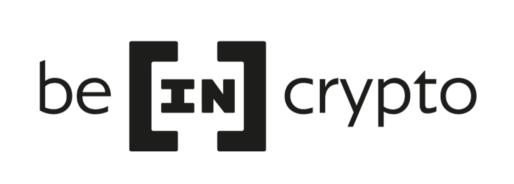At Crypto AI:CON 2024, we sat down with David Jiao, CEO of Privasea, a trailblazer in the Web3 space addressing one of its most pressing challenges: bots.
Privasea is on a mission to create a “proof-of-humanity” ecosystem that ensures fair engagement in decentralized applications without compromising user privacy.
Their advanced integration of biometric verification and trustless environments is setting new standards in the fight against bot-driven scams in the blockchain industry. In this insightful interview with Luka, Lunar Strategy’s Head of Sales, David sheds light on the transformative work Privasea is doing to balance privacy, security, and accessibility in the Web3 ecosystem.
What does “trustless humanity” mean to you, and how does Privasea aim to achieve this in fighting bots?
Building trustless solutions to fight bots is one of our main goals and a core part of our products. We’re building a proof-of-human ecosystem that allows ecosystem partners to easily verify that an address or user account belongs to a real human.
This attestation of humanity can be accessed on-chain or off-chain through our API or ABI, making it straightforward for partners to integrate. They can check our smart contract to confirm if a user is a trusted human.
The purpose of this is to combat scams and bot farming in Web3. Not anti-human farming, though—human farming is different, as real people engaging with projects is beneficial. They’re spending their time and contributing, which is healthy for the ecosystem.
What we’re targeting are scripts or automated bots that farm tokens. We want projects to reward real humans, not these bots.
Why are bots a growing challenge in the Web3 ecosystem with advancements in AI, and how does Privasea address this while ensuring user privacy through biometric verification?
Right now, with the rise of large language models and advanced AI agents, it’s much easier for bots to mimic humans, even generating human voices to spread toxic content or scam people. That’s a huge challenge.
To effectively eliminate bots in this AI era, you need reliable verification methods. One of the most effective and secure ways we see is through biometric data, which we’ve adopted at Privasea as a proof-of-humanity solution.
We want users to use biometric data to verify themselves without risking their privacy. We don’t want them to have to share their biometric data just to earn a few tokens. Our goal is for users to retain control over their biometric data, self-custody it, and still be able to verify themselves securely in Web3 without privacy concerns.
How does Privasea balance security and a trustless environment, especially when it comes to fighting bots?
First, we make user onboarding easy by having them register and maintain a Soulbound Token (SBT) in our app. This unique badge can link to their social profiles or wallet addresses, allowing their “proof of humanity” to be visible on the blockchain. It’s similar to Web3 domain alliances, like Vitalik’s .eth address representing his wallet.
When users input their wallet addresses, they’ll see a proof-of-human badge, which confirms their identity. It’s all on-chain, easy to check, and we think it’ll be well-received in the market since it’s what’s lacking right now.
Can you share some details on the mainnet launch and key features users can expect?
We’ll launch a testnet beta in December. Node holders will be able to pre-mine in our network by providing proof of readiness, and we’re inviting FHE-dedicated accelerators to join and provide computational power to boost FHE machine learning in our network.
The mainnet launch is planned for Q1 of next year, in 2025. On mainnet, we’ll support more machine learning models via FHE pipelines, allowing developers to optimize their entire pipeline within our network by simply paying gas fees.
Could you give specifics on the upcoming TGE and its potential impact on the ecosystem?
I can’t confirm the exact date of the TGE, but I can say it will significantly strengthen the ecosystem. Once it happens, the tokens can be used in the network as fundamental utilities, like gas fees, supporting the FHE machine learning network. Miners providing computational power will be rewarded with tokens, and the ecosystem’s utility tokens will incentivize both the supply and application sides.
The TGE will offer rewards for early users as well. We have about 300,000 users who are already registered in our app, and they’ll receive a substantial portion of these rewards.
In fact, we’ve dedicated 10% of our token distribution for airdrops to application users during the first year as a reward for supporting us since we launched in June on Solana. We’re now expanding to Solana and Arbitrum, and these early supporters have been instrumental in helping us test the app. And more importantly, we’re rewarding actual humans, not bots.
About Crypto AI Conference
Crypto AI:CON 2024 is Europe’s premier event at the intersection of blockchain and artificial intelligence, hosted in the heart of Lisbon—quickly earning its reputation as Europe’s Silicon Valley. Held at the iconic Técnico Innovation Center, the conference is a two-day gathering of visionaries, innovators, and trailblazers driving the future of decentralized technology.
With Lisbon’s dynamic tech ecosystem as the backdrop, Crypto AI:CON provides a platform for top-tier speakers, groundbreaking workshops, and exclusive panels that explore how AI and crypto are converging to create new opportunities. From decentralizing data privacy to leveraging AI for efficiency in DeFi, the event highlights the latest use cases and trends reshaping industries worldwide.
More than 2,000 attendees from around the globe will connect with leading AI experts, blockchain pioneers, investors, and startups, making it an unparalleled networking hub. Supported by industry giants such as ICP, Privasea, and ICN Protocol, Crypto AI:CON sets the stage for critical conversations and collaborations shaping tomorrow’s decentralized economy.
Stay tuned for more transformative ideas shaping the future of Web3!
The post Privasea CEO David Jiao: Building Trustless Humanity and Redefining Web3 Security appeared first on BeInCrypto.

 2 months ago
31
2 months ago
31









 English (US) ·
English (US) ·